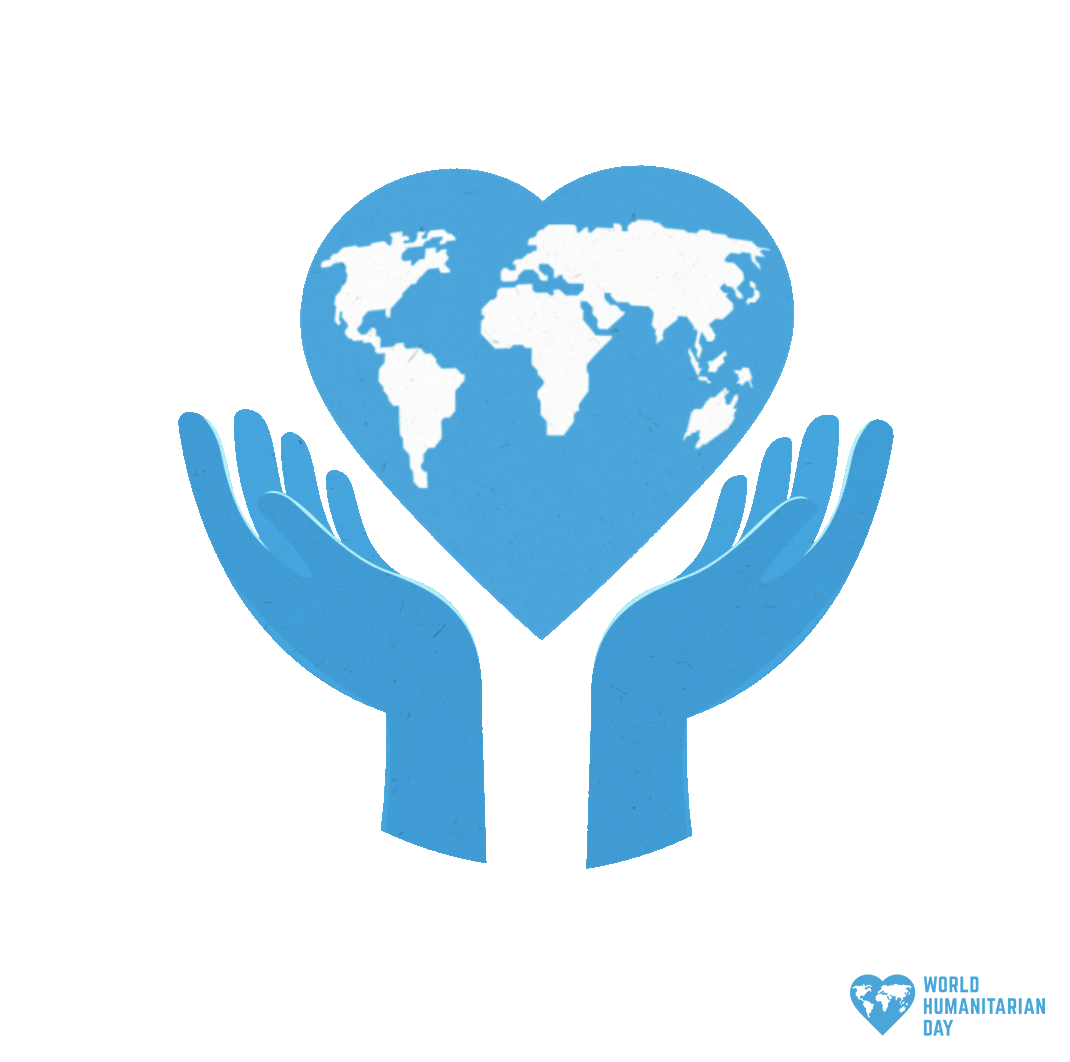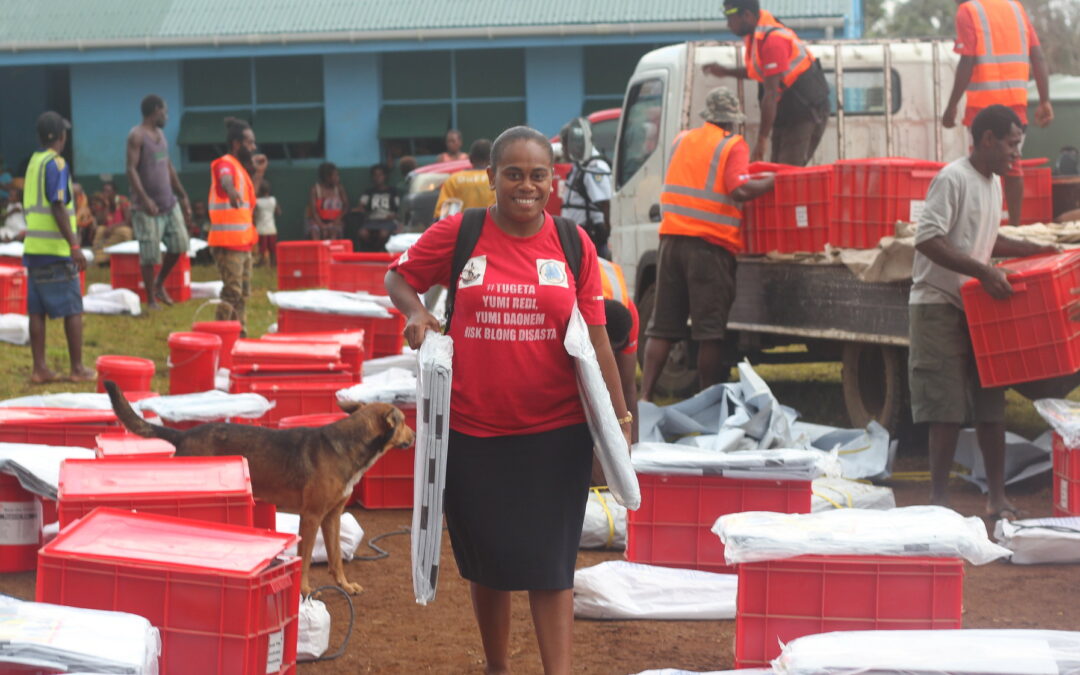Pictured above, Save the Children – a partner with the Australian Humanitarian Partnership – works with government to distribute humanitarian relief supplies on Efate, Vanuatu after twin tropical cyclones hit the country in March 2023. Credit: Elisa Mondou, Save the Children Vanuatu
By Ashlee Betteridge, Communications and Visibility Manager, Australian Humanitarian Partnership Support Unit – Alinea Asia-Pacific
According to the UN Global Humanitarian Overview, at the beginning of 2022, around 274 million people globally needed humanitarian assistance. By 2023, this number reached 339 million – a staggering 24 per cent increase. This means that one in every 23 people on the planet needs humanitarian aid.
Managing this rising and unprecedented demand is front of mind for those working in the sector.
World Humanitarian Day is an opportunity to reflect on the challenge and costs of rapidly escalating, complex crises. Historically, this day recognises the commitment and risk faced by those on the humanitarian frontline, commemorating the tragic deaths of 22 aid workers in a 2003 bomb attack in Baghdad. In this spirit, the theme for 2023 is #NoMatterWhat: Acknowledging humanitarian work is difficult and dangerous, but we cannot give up on our commitment to deliver life-saving assistance.
To rise to this challenge, aid workers need more than applause and gratitude for their sacrifices. Systems-level changes are necessary to have any chance of meeting the ever-growing demands on the humanitarian sector while supporting the often–overburdened individuals that comprise it.
Investing in preparedness, and local systems and capacity, is one path forward.
Australian Humanitarian Partnership Support Unit
Through the Australian Humanitarian Partnership (AHP), Australia is increasingly supporting local NGOs and civil society to take the lead on humanitarian response – a key tenant of the Grand Bargain – and better prepare and coordinate before disaster strikes. AHP is a partnership between the Australian Government and six leading Australian NGOs to save lives, alleviate suffering, and enhance human dignity in the face of conflict, disasters, and other crises. Alinea Asia-Pacific operates the AHP Support Unit, which provides a range of services, MEL, and communications functions to Australia’s Department of Foreign Affairs and Trade and partner NGOs to facilitate the program.
While localisation is by no means a new discussion in the humanitarian space, the COVID-19 pandemic and other pressures moved the needle. For AHP, the clearest indicator is the pronounced shift in funding distribution to local partners for humanitarian response: Increasing from 21 per cent in 2018 to 48 per cent in 2023. This enhanced level of resourcing to local organisations, who are always first on the ground when crisis hits, is critical, but so are other forms of support.
The Pacific Islands are Australia’s nearest neighbours and among the world’s highest risk countries for disasters and climate impacts. Investments in resilience and preparedness, like the AHP Disaster READY Program, are not only a platform for increased local leadership, but a tool to support communities to take their own life-saving actions. This program supports communities in Fiji, Vanuatu, Solomon Islands, Papua New Guinea, and Timor-Leste.
Anticipatory Action
On this front, AHP recently launched a pilot program, with support of the Australian Government, to look at the role of Anticipatory Action in the Pacific with trials going ahead in in Timor-Leste, Vanuatu, and Papua New Guinea.
There is a growing body of evidence that actions to support communities prior to an imminent hazard are a more cost-effective investment than responding after an event. Anticipatory Action refers to a set of interventions carried out when a hazard poses imminent danger based on a forecast, early warning, or pre-disaster risk analysis.
By shifting the focus of response to the pre-crisis space, Anticipatory Action allows humanitarians and affected communities to make informed decisions ahead of disaster events – saving time and money; preventing displacement, disease, and loss of livelihoods; and preserving the dignity of those affected.
AHP partners work tirelessly to respond to crisis, as well as to collectively support learning and constant improvement. The lessons taken from Anticipatory Action have the potential to support a more responsive humanitarian future in the Pacific and beyond.
#NoMatterWhat
The work of dedicated, global humanitarians will always be needed. However, innovations in preparation for and response to crises, particularly at the local level, will ensure this sector can continue to meet the growing challenge of saving lives and enhancing dignity. No matter where, no matter who, #NoMatterWhat.


